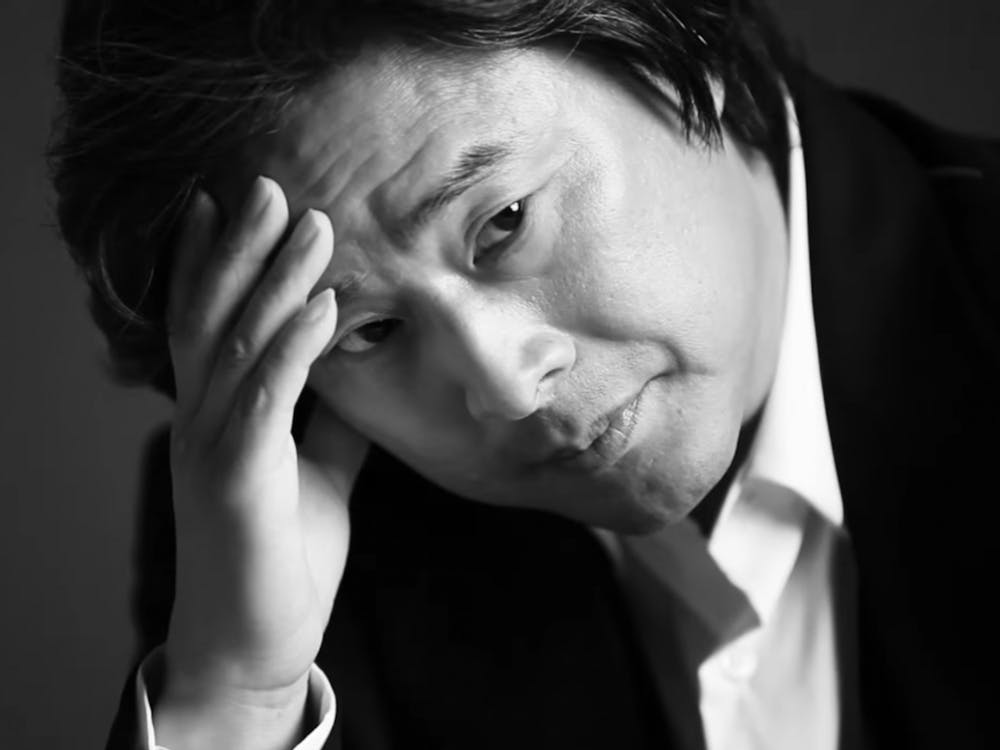
I watch a lot of movies. Most are forgettable, some come back to me from time to time, but a special few stay with me. Last year, of the catastrophically many times I visited the Baltimore theaters, there were some special visits that nestled irrevocably in my memory. I’m not even sure if they are good films — all I know is that I can’t seem to forget them. One such particularly memorable film from last year is South Korean director Park Chan-wook’s Decision to Leave.
At its heart, Decision to Leave is a love story and a very perverted one at that. It follows Hae-joon (Park Hae-il), a detective investigating the death of a retired immigration officer who fell off a mountain while on a hike. While interrogating the officer’s widow, Seo-rae (Tang Wei), a Chinese immigrant and nurse, Hae-joon is drawn to her enigmatic persona. She is innocuous and seductive, and in her eyes lies the end of the happily-married detective.
As the insomniac Hae-joon stakes Seo-rae’s house out all night, his voyeurism advances to an intense infatuation. Eventually, as she obtains an alibi and is cleared as a suspect, they spend more time together and form a platonic relationship simmering with palpable lust. However, Seo-rae is not as innocent as she proves herself to be, and what follows is a twisted tale of betrayal, manipulation, love and heartbreak.
Tang is absolutely exhilarating in her unique take on the femme fatale. She takes a ubiquitous trope and transforms it into a layered character with intense wants and an even more intense need to fulfill them in her own perverse way. Her eyes are so soft and welcoming that Hae-joon forgets everything about his wife and duty and surrenders himself to her, despite knowing deep within that she will destroy him.
Park Hae-il’s performance as Hae-joon is a powerhouse too, as he inhabits his troubled character with a confusion and vulnerability that keeps him rooted in the audience. As his character faces an ultimate dilemma between his heart and his brain, Park Hae-il embodies a torn spirit with an intense sadness that is subtle, yet all-consuming.
Director Park Chan-wook achieves a jarring and unique visual structure in this film. With sharp focus pulls, abrupt cuts and accentuated pans, he disorients the audience as the film begins, immediately putting them in Hae-joon’s confused psyche. These bold choices acquire a sudden grace upon Seo-rae’s arrival, as focus pulls land crisply on her face and the camera and editor all seem to bend themselves to cater to her character.
Furthermore, the absurd visual style is complemented by an equally absurd and witty script that balances romance and mystery with such mastery that one wonders if they were ever different things. The fabulousness of the script’s perversion seeps into its characters and their environment, and the result is a film that converts an overdone story into an extraordinary and unrecognizable experience.
As I said before, Decision to Leave is a love story. On watching the film, some may find that description misleading, but I stand by it. In this world, the characters express their love through manipulation and murder with the equivalency of a flower bouquet.
I love genre-blending when done well, and Decision to Leave does it in a way that is surprising and satisfying. I like the feeling of watching something so different that I give up trying to make sense of it halfway through and just enjoy the spectacle because I know I’m in good hands. There are few hands as good as Park Chan-wook. He blends the thriller and the romance to create something I had never seen before, which made it a particularly memorable experience for me.
Cinema is often tasked with inspiring faith in the world and orchestrating odes to its beauty. Films diverting from this expectation are deemed controversial and esoteric, but they hold a special place in my heart. Such is the case with Decision to Leave. It romanticizes human perversion and tells a story as old as time with revelatory style. It indulges in a sadistic exploration of human hopelessness and fragility when it comes to love and desire.
With South Korean cinema gradually becoming more mainstream over the past few years, works of directors like Park Chan-wook are becoming more scrutinized. I urge everyone to jump on the bandwagon to be exposed to the wealth of this industry and its many uplifting and entertaining stories. For now, I recommend the dark and twisted rabbit hole of romantic perversion that is Decision to Leave.





